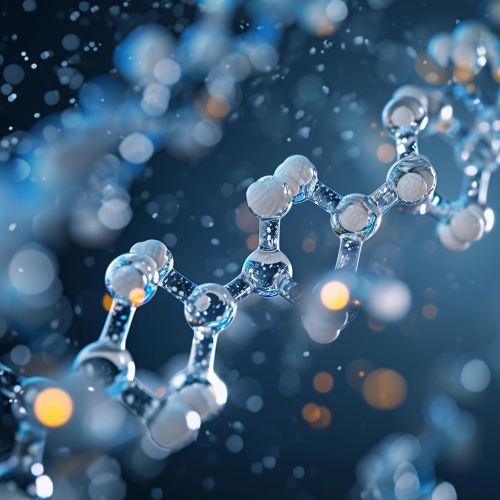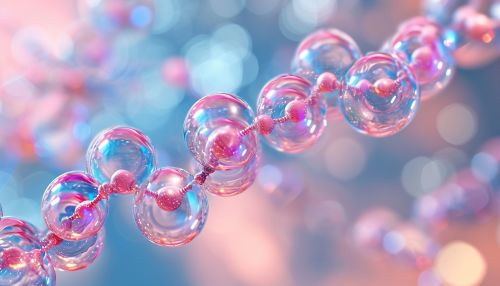Dipeptide
Introduction
A dipeptide is a type of peptide that consists of two amino acid residues linked by a single peptide bond. Dipeptides are derived from proteins, which are large, complex molecules made up of hundreds or thousands of amino acids. When proteins are digested or broken down, peptides such as dipeptides are formed. Dipeptides are the simplest form of peptides and are used in various biological functions.


Structure and Formation
The structure of a dipeptide is relatively simple, consisting of two amino acids joined by a peptide bond. This bond is formed through a process known as dehydration synthesis, where a water molecule is removed to facilitate the bonding. One of the amino acids loses a hydrogen and oxygen from its carboxyl group (-COOH) and the other loses a hydrogen from its amino group (-NH2). This results in the formation of a peptide bond (-CO-NH-) between the two amino acids, creating a dipeptide.
Types of Dipeptides
There are numerous types of dipeptides, depending on the combination of the two amino acids. For instance, carnosine is a dipeptide consisting of beta-alanine and histidine. It is found in muscle tissue and the brain, and has antioxidant properties. Another example is aspartame, a dipeptide made from aspartic acid and phenylalanine. Aspartame is widely used as a low-calorie artificial sweetener.
Biological Functions
Dipeptides play a variety of roles in biological systems. They are involved in protein synthesis, where they are used to build longer peptide chains. Some dipeptides also have specific functions. For instance, the dipeptide carnosine has antioxidant properties and can protect cells from damage by reactive oxygen species. Dipeptides can also act as neurotransmitters or modulators of cell signaling pathways.
Dipeptides in Nutrition and Health
Dipeptides are also important in nutrition and health. They are easier to absorb than individual amino acids or larger proteins, making them a useful source of dietary protein. Some dipeptides have specific health benefits. For example, the dipeptide carnosine has been studied for its potential to improve muscle function and reduce fatigue during exercise.
Dipeptides in Research and Medicine
In research and medicine, dipeptides are used in various ways. They are used in the study of protein structure and function, and in the development of new drugs. Some dipeptides have been found to have medicinal properties. For example, the dipeptide KYNA, made from kynurenine and alanine, has been studied for its potential to treat neurodegenerative diseases.
